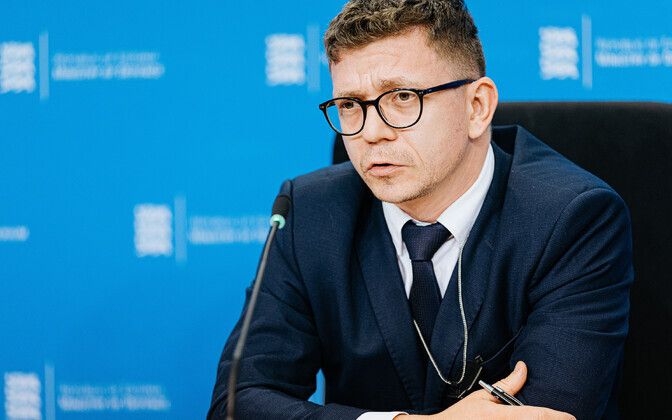Defense ministry: Russia's ICBM strike in Ukraine was to send ...

Russia's aim in using an intercontinental ballistic missile (ICBM) to attack Ukraine is to send a political message, said Gert Kaju, head of defense capabilities at the Estonian Ministry of Defense.
Kaju said that on the 1,000th day since Russia's full-scale invasion of Ukraine began, Ukraine attacked targets on the territory of the Russian Federation with Storm Shadow and ATACMS missiles. In response, Russia attacked Ukraine with an intercontinental ballistic missile (ICBM) strike on Thursday morning. Russia itself has confirmed the attack.
"This is something that has not been used before, a completely different weapon system. Whether it will be followed by the use of anything similar remains to be seen, but it is more likely to be to send a political message, because intercontinental ballistic missiles are significantly more expensive than the other weapon systems that are being used on a daily basis," Kaju said.
Speaking about the losses of the Russian Armed Forces, Kaju said that the number of wounded and killed now stands at around 500,000, with some estimates suggesting the figure may even be as high as 700,000.
Kaju said that the North Korean soldiers sent to the Ukrainian front would not make a significant difference to the bigger picture.
"We are talking today about 10,000 to 12,000 North Korean soldiers. According to Ukrainian estimates, this number could grow, with speculation suggesting it could even reach as many as 100,000 soldiers. Time will tell but that cannot be confirmed here at the moment. This involvement of North Korean soldiers should not lead to a change in terms of the bigger picture, because these military losses on a daily basis are so high that this is just a short-term mitigation measure," Kaju said.
Kaju said the European Union had fulfilled its promise to supply Ukraine with one million artillery shells. "This has brought some relief in terms of ammunition, but that does not mean that it ought to stop now – quite the opposite. This support from the West has to continue and must be stable, because all defensive operations still require very large quantities of ammunition," he said.
According to Estonian Defense Forces (EDF) Intelligence Center, on the frontline, fighting continues in all regions, from Kursk to Zaporizhzhia. Russian troops are continuing their offensives, despite suffering heavy losses to capture a small area. In some areas, the number of casualties amount to approximately one soldier killed per meter conquered. On some occasions, even more than a thousand have been killed in a single day.
According to the latest information from the EDF Intelligence Center, on the outskirts of Kupiansk, in the Luhansk direction, Russian units have reached the eastern part of the town on the eastern bank of the Oskil River.
"It is possible that crossing the river is one of the objectives of the Russian Federation forces, as it would deprive the Ukrainian forces of a significant natural defensive position. At the moment, there are no reports that the Russian Federation forces have been able to establish themselves on the west bank of the river," noted Kaju.
"In Donetsk Oblast, on the front's main axis, the pressure on Ukrainian forces continues in the Pokrovsk-Kurakhove area. The Ukrainian-controlled frontline is steadily shrinking and, in this context, the risk of the Ukrainian forces there becoming trapped, so to speak, is increasing. However, there are currently no signs of a potential breakthrough, despite the direction also being supported by offensive activity in the Vuhledar region," he added.
---
Follow ERR News on Facebook and Twitter and never miss an update!











































